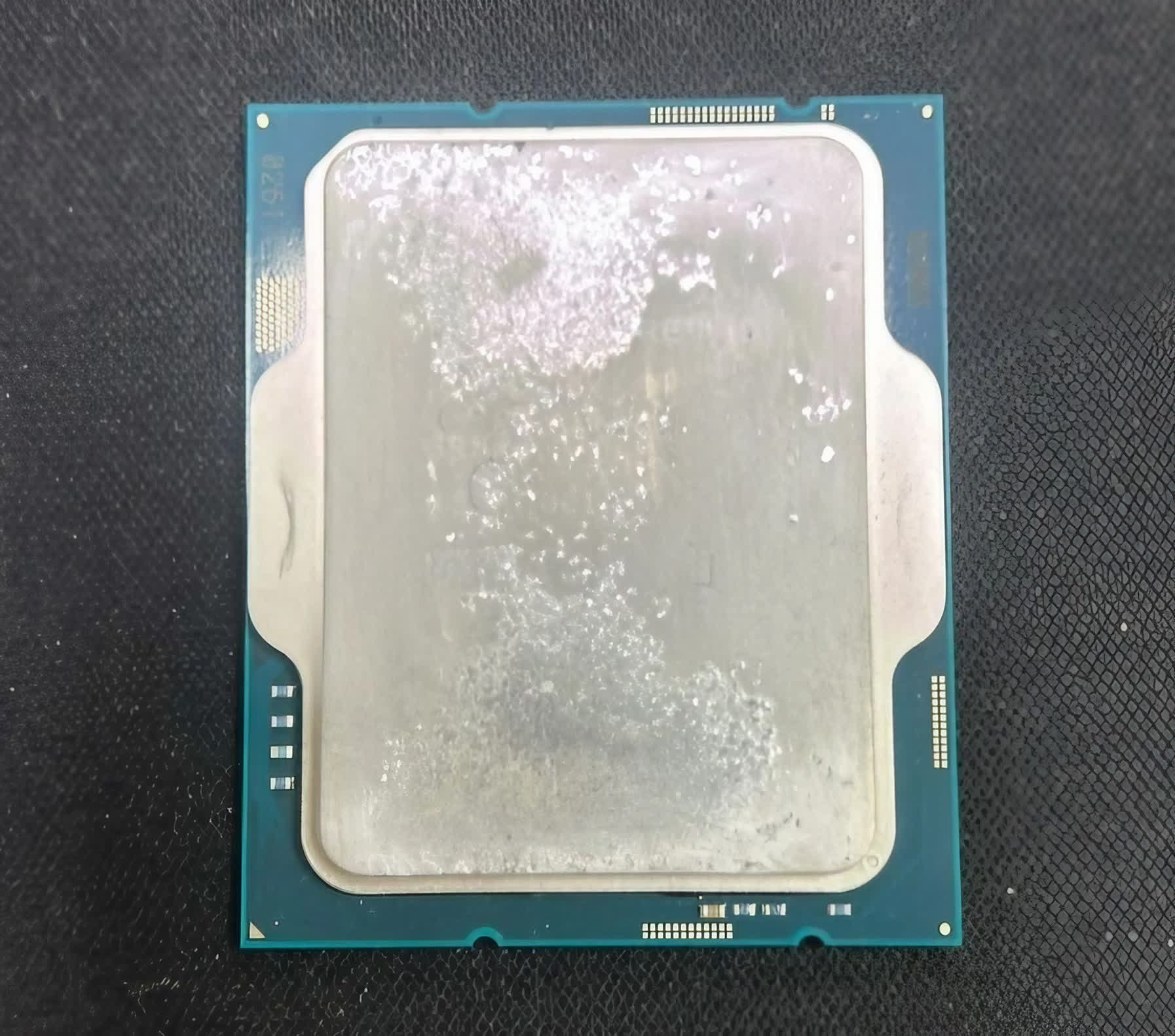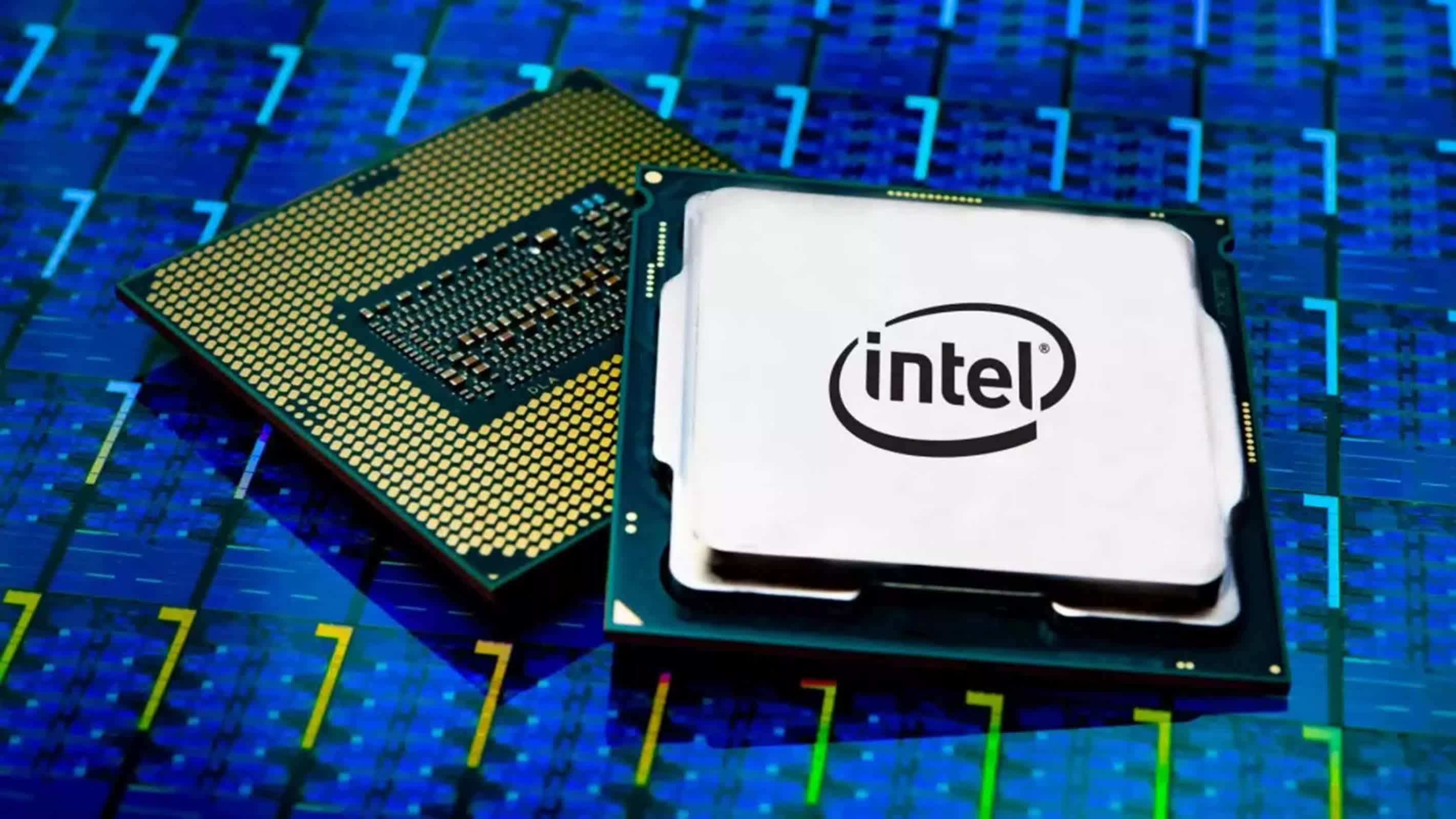The big picture: Enthusiasts looking to push their high-end Raptor Lake or Raptor Lake Refresh Intel processors to the limits might want to think twice before using liquid metal thermal paste. According to a recent report, Intel is voiding warranties for CPUs cooled with this favorite material of overclockers, even if the processors are suffering from crashing issues.
The story comes from an investigation by the tech site HKEPC, which highlights one unlucky user who got a nasty surprise while trying to take advantage of Intel's extended warranty for the failure-prone Core i9-14900K processor. Despite Intel being more lenient with warranty claims after months of issues with crashing 13th- and 14th-gen chips, it denied this user a replacement or repair.
The reason for the denial was that the liquid metal thermal paste had corroded the CPU's integrated heat spreader, removing all of the chip's printed markings – the model, batch number, and 2D matrix code. Without those identifiers intact, Intel couldn't verify the processor for the warranty claim. Just look at the image shared by the publication to get a better idea.

This certainly isn't a new policy cooked up in response to Raptor Lake woes. Intel has explicitly stated for years that using liquid metal thermal interface materials (LMTIM) can void a CPU's warranty coverage. AMD has similar policies in place too.
The blame lies with the inherently corrosive nature of those metallic alloy formulas. Whereas standard thermal paste is just designed to transfer heat, spilling liquid metal could potentially let electricity arc across the chip or onto the motherboard since it's electrically conductive. The removal of those all-important identification markings is a clear sign that it was used.
"Due to its high conductivity, if LMTIM comes into contact with areas that should not have been in contact with LMTIM (such as the capacitors on the surface of the processor package), it might cause immediate issues or failures, or it can lead to performance degradation or system instability over time," notes Intel, explaining why using liquid metal voids the warranty.
To be fair, liquid metal paste can provide a legitimate cooling advantage for heavy overclockers willing to accept the risks. When properly applied between a delidded die and a high-end cooler, those low melting-point alloys offer much better thermal conductivity than traditional pastes.
However, for the vast majority of users running stock or near-stock configurations, liquid metal can be overkill with dangers that outweigh the benefits. So, unless you bought a pre-built system from the factory with liquid metal already applied, don't expect any warranty coverage if you make the cooling upgrade yourself.
Image credit: HKEPC
